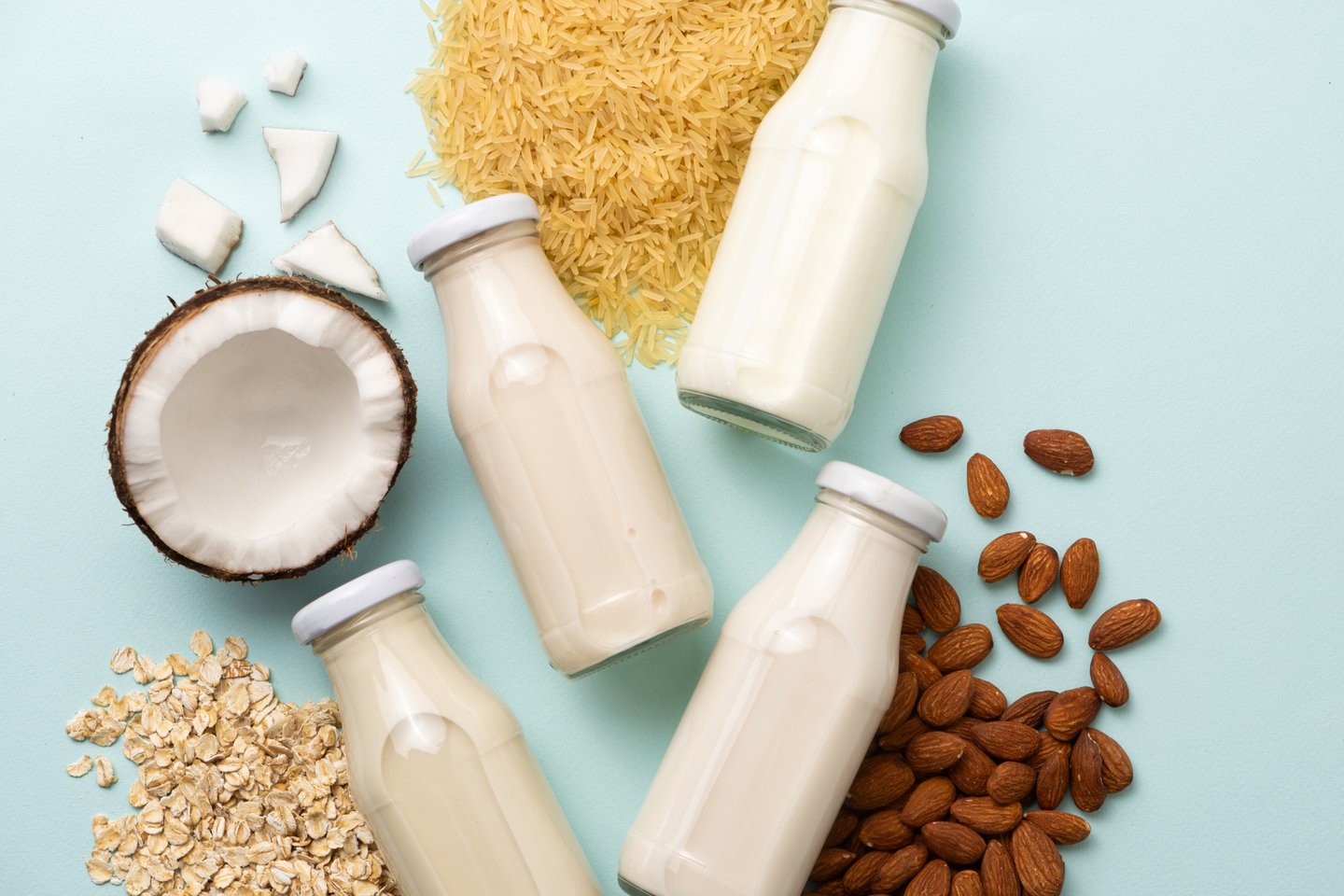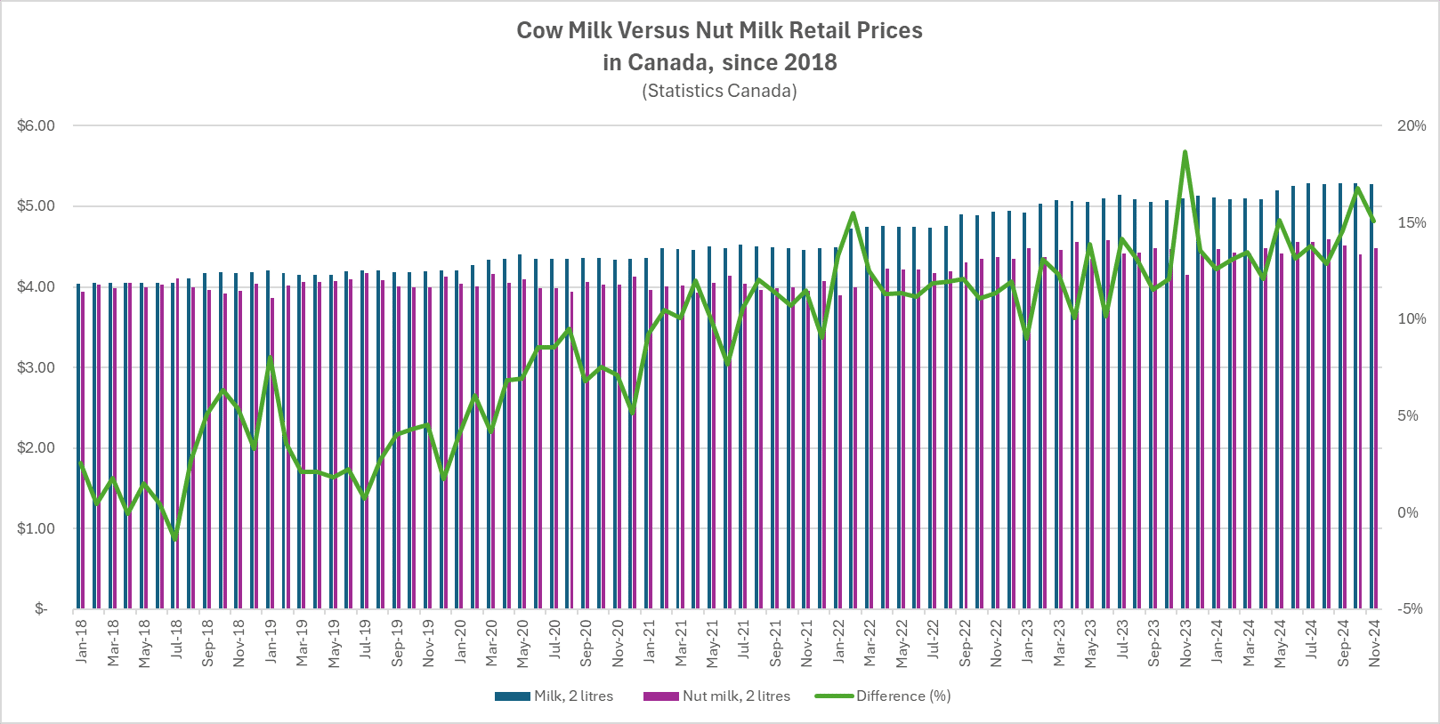Plant-based milk: A question of fairness or hidden agendas?
A class-action lawsuit has been filed against major coffee chains, including Starbucks, Tim Hortons, and Second Cup, over surcharges for plant-based milk alternatives such as soy or oat beverages. The authorization request, submitted to a Quebec court last week, challenges the fairness of these fees, suggesting they may not be financially justifiable and could even serve to discourage plant-based consumption.
Data from Statistics Canada indicates that plant-based beverages have been consistently cheaper than dairy milk for most of the last six years, with an average price difference of about 15%. The price gap continues to widen, driven by rising dairy production costs and growing consumer demand for plant-based alternatives. While retail prices do not fully reflect what coffee chains pay their suppliers, these trends strongly suggest that surcharges are not aligned with current cost realities. This discrepancy raises a critical question: are these charges a financial necessity, or were they a deliberate strategy to discourage plant-based consumption?
One plausible explanation is that these surcharges served to subtly steer consumers back toward dairy, aligning with the interests of Canada’s supply management system. Under this system, dairy boards regulate production and prices, ensuring a stable market for dairy farmers but also protecting the industry’s dominance. Coffee chains may have indirectly supported this system by imposing financial barriers on plant-based choices, a practice that becomes harder to justify as plant-based options become mainstream and economically competitive.
For nearly three decades, coffee chains have charged fees ranging from $0.50 to $0.80 for plant-based milk, generating significant revenue. Starbucks Canada alone is estimated to have collected over $337 million through these surcharges, with the total across all chains likely reaching billions. The lawsuit also highlights the discriminatory impact of this practice, particularly on consumers who cannot consume dairy. A 2020 study from the Journal of the Canadian Association of Gastroenterology estimated that 44% of Canadians—about 16 million people—experience lactose intolerance due to lactase non-persistence. Penalizing these consumers for their dietary restrictions raises ethical concerns, especially when alternatives are cheaper.
READ: As plant-based milk becomes more popular, brands look for new ways to compete
Proponents of free-market principles might argue that coffee chains have the right to set their own prices, and consumers can choose to accept or reject them. However, these practices must also be weighed against ethical responsibilities and consumer perceptions. Charging extra for plant-based options—despite their lower cost—risks being seen as opportunistic or as supporting an already heavily subsidized dairy industry. This perception of “profit gouging” or hidden motivations could erode trust and loyalty among a growing base of consumers prioritizing sustainability and fairness.
Interestingly, Starbucks Canada eliminated its surcharge for plant-based milk in November, followed shortly by Tim Hortons. While these decisions may reflect shifting consumer expectations or internal cost recalculations, the timing coincides with the lawsuit’s filing. Whether coincidental or strategic, these changes underscore the growing demand for fairness and transparency in food service practices. With plant-based options now cheaper and more accessible than ever, the industry faces increasing pressure to align pricing with consumer values and market realities.







